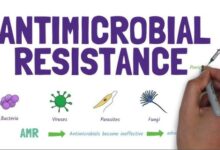Popular weight-loss diets may not be so good for heart health
Some of the most popular diet plans may help with weight loss, which can lower the risk of heart disease. But an eating plan that includes a lot of unhealthy oils and saturated fats can raise the risk of heart disease, even if it does help reduce weight.
That’s why a committee of experts with the American Heart Association developed a ranking of the top 10 diets in the U.S., scoring them based on how well they followed guidelines for a healthy heart. It’s the first time the heart association has rated the most popular diets.
The list, published Thursday in Circulation, gave the lowest scores to the paleo and ketogenic, or keto, diets for their reliance on fats from animal sources, such as butter and full-fat dairy, while severely restricting carbohydrates.
Top marks were given to the Mediterranean diet and the DASH diet, which focuses on whole grains, vegetables and low-fat dairy. Pescetarian — eating fish but not red meat —and vegetarian diets also scored highly for their heart benefits.
It’s not that eating fat, in general, is bad for the heart, said the chair of the committee, Christopher Gardner, a professor of medicine at Stanford University. Unsaturated fats — such as plant-based oils, like olive oil or sunflower oil, or fish, like salmon, and walnuts — can reduce LDL cholesterol levels and lower the risk of heart disease.
Gardner and other committee members rated diets according to how well they followed the American Heart Association’s scientific guidelines for a healthy heart:
- Eat a wide variety of vegetables and fruits.
- Choose foods with mostly whole grains rather than refined grains.
- Choose healthy sources of protein, such as plants (legumes and nuts), fish and seafood, and low-fat or fat-free dairy products instead of full-fat dairy products.
- If meat is included, cuts should be lean and processed forms should be avoided.
- Use liquid plant oils (olive, safflower, corn) rather than animal fats (butter and lard) and tropical oils (coconut, palm kernel).
- Consume minimally processed foods instead of ultraprocessed foods.
- Limit consumption of beverages and foods with added sugars.
- Choose and prepare foods with little or no salt.
- Avoid or limit alcohol.
In the new report, the committee divided the diets into four tiers, based on a point given for each guideline.
The highest-scoring diets included:
- DASH (Dietary Approaches to Stop Hypertension), for its reliance on fish, poultry, beans, nuts and low-fat dairy.
- Mediterranean, which is rich in seafood, vegetables, nuts and whole grains.
- Vegetarian, including eggs or dairy or both.
- Pescetarian, which relies on fish as the main source of protein.
Vegan and low-fat diets were ranked in the second tier. Both encourage consuming legumes and nuts while limiting alcohol and foods and beverages with added sugars. However, following a strict vegan diet could contribute to vitamin B-12 deficiency, according to the heart experts. Low-fat diets lost points for treating all fats the same and because people tended to replace fats with carbohydrates or added sugars.
The third tier included very low-carb and very low-fat diets for being too low in fiber or for restricting fruits, nuts and healthy fats, such as plant oils.
The keto and paleo diets also fell into the fourth tier, in part because of restrictions on fruits, whole grains and legumes, which can result in reduced fiber intake, Gardner said.
Dr. Deepak Bhatt, the director of Mount Sinai Heart and a professor of cardiovascular medicine at the Icahn School of Medicine at Mount Sinai, said, “The recommendations not only align with science, but also probably with what our mothers told us growing up: Eat your fruits and vegetables.”


 By
By 








